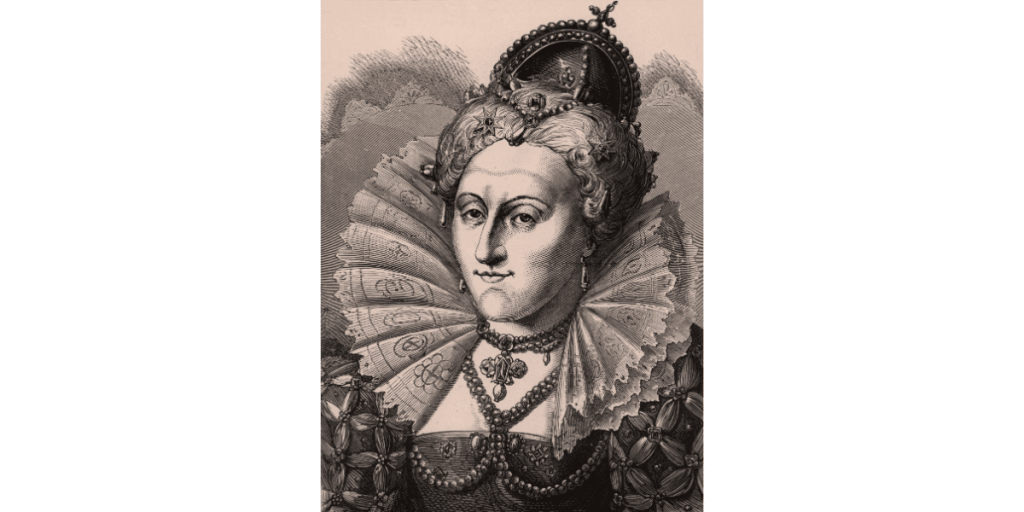Elizabeth I, also known as the Virgin Queen, Gloriana, or Good Queen Bess, was one of the most remarkable rulers in English history. Her 44-year reign from 1558 until her death in 1603 marked a period of unprecedented prosperity, stability, and cultural growth in England. Elizabeth’s leadership skills were instrumental in steering the nation through complex religious, political, and economic challenges. In this blog post, we’ll delve into the key leadership qualities that defined her rule and examine how they can serve as a guide for effective leadership today.

Diplomacy and Tact
Elizabeth I was an astute diplomat who managed to maintain a delicate balance among European powers during her reign. She was known for her ability to negotiate and use tact in her dealings, which often helped her avoid unnecessary wars and maintain peace. For example, Elizabeth I successfully navigated the treacherous waters of the Protestant Reformation and Catholic opposition by implementing the Elizabethan Religious Settlement, which brought a level of religious stability to England.
Pragmatism and Adaptability
One of the hallmarks of Elizabeth’s leadership was her pragmatic approach to governance. She was able to adapt to changing circumstances and adopt new policies to address the evolving needs of her kingdom. Elizabeth recognized that her ultimate responsibility was to the welfare and security of her people, and she was willing to make tough decisions and compromises when needed.
Intelligence and Education
Elizabeth was a highly intelligent and well-educated ruler. She was fluent in six languages – English, Latin, Greek, French, Spanish, and Italian – and had a deep knowledge of history, philosophy, and theology. Her education and intelligence enabled her to engage in sophisticated political discussions and make informed decisions about her realm’s affairs.
Communication and Charisma
Elizabeth I was an extraordinary communicator who used her charisma and eloquence to win the hearts and minds of her subjects. She was known for her ability to deliver powerful speeches that would rally her people in times of crisis. One of her most famous speeches, the Tilbury Address, was delivered to her troops as they prepared to face the Spanish Armada in 1588. In this speech, she famously said, “I know I have the body but of a weak and feeble woman, but I have the heart and stomach of a king, and of a king of England too.”
Vision and Foresight
Elizabeth had an uncanny ability to foresee the consequences of her decisions and maintain a long-term vision for her kingdom. She understood that her decisions would have lasting effects, so she carefully weighed her options and always considered the future implications. For example, Elizabeth resisted the pressure to marry and produce an heir, knowing that it could lead to political instability and threaten her nation’s security.
Patience and Persistence
As a leader, Elizabeth I demonstrated remarkable patience and persistence. She was willing to bide her time and wait for the right opportunity to act, rather than impulsively rushing into decisions. This quality allowed her to navigate the treacherous political landscape of her time and ensure the long-term success of her reign.
Empowerment and Delegation
Elizabeth I understood the importance of empowering her advisors and delegating tasks to those who were best suited to handle them. She had a knack for identifying talented individuals and placing them in key positions, such as her trusted advisor William Cecil, later Lord Burghley, and Sir Francis Walsingham, her spymaster. By surrounding herself with capable individuals and trusting them to carry out her vision, Elizabeth was able to maintain an efficient and effective government.
Courage and Resilience
Throughout her reign, Elizabeth faced numerous challenges and threats, both internally and externally. Despite these adversities, she displayed unwavering courage and resilience. Whether it was the threat of the Spanish Armada or plots against her life, Elizabeth remained steadfast and resolute in her determination to protect her kingdom and uphold her rule. Her strength of character and fearlessness in the face of adversity served as a source of inspiration for her people and earned her the respect of both her allies and enemies.
Cultivation of the Arts and Culture
Elizabeth I was a patron of the arts and a strong supporter of cultural development in England. During her reign, the Elizabethan era flourished, producing some of the most celebrated playwrights, poets, and artists in history, such as William Shakespeare, Christopher Marlowe, and Edmund Spenser. Elizabeth recognized the value of the arts as a means of promoting unity and national identity, and she used her patronage to encourage artistic and intellectual pursuits.
Integrity and Fairness
Elizabeth I was known for her sense of justice and fairness in her rule. She endeavored to treat all her subjects equally, regardless of their social status or religious beliefs. While her reign was not without controversy, she consistently demonstrated her commitment to upholding the rule of law and ensuring that her government operated with integrity. This approach not only contributed to her political stability but also garnered her widespread respect and admiration from her subjects.
Conclusion
Elizabeth I’s leadership qualities – diplomacy, pragmatism, intelligence, communication, vision, patience, empowerment, courage, cultivation of the arts, and integrity – made her one of the most successful and revered monarchs in English history. Her reign marked an era of prosperity, stability, and cultural growth that left a lasting impact on England and the world. By studying her leadership skills, modern leaders can gain valuable insights into what it takes to effectively navigate complex challenges and achieve enduring success.











